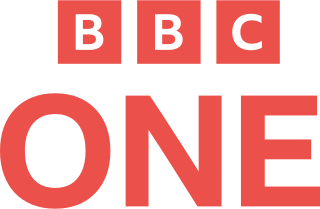
ITV is a British free-to-air public broadcast television network. It was launched in 1955 as Independent Television to provide competition and reduce the current monopoly to the then BBC Television. ITV is the oldest commercial network in the UK. Since the passing of the Broadcasting Act 1990, it has been legally known as Channel 3 to distinguish it from the other analogue channels at the time: BBC One, BBC Two, and Channel 4.
Regular television broadcasts in the United Kingdom started in 1936 as a public service which was free of advertising, which followed the first demonstration of a transmitted moving image in 1926. Currently, the United Kingdom has a collection of free-to-air, free-to-view and subscription services over a variety of distribution media, through which there are over 480 channels for consumers as well as on-demand content. There are six main channel owners who are responsible for most material viewed.
Breakfast television or morning show is a type of news or infotainment television programme that broadcasts live in the morning. Often presented by a small team of hosts, these programmes are typically marketed towards the combined demography of people getting ready for work and school and stay-at-home adults and parents.

BBC One is a British free-to-air public broadcast television channel owned and operated by the BBC. It is the corporation's oldest and flagship channel, and is known for broadcasting mainstream programming, which includes BBC News television bulletins, primetime drama and entertainment, and live BBC Sport events.

The British Forces Broadcasting Service (BFBS) provides radio and television programmes for His Majesty's Armed Forces, and their dependents worldwide. Editorial control is independent of the Ministry of Defence and the armed forces themselves. It was established by the British War Office in 1943. In 1944, it was managed by Gale Pedrick.

Scottish Television is the ITV network franchisee for Central Scotland. The channel — the largest of the three ITV franchises in Scotland — has been in operation since 31 August 1957 and is the second-oldest franchise holder in the UK that is still active.

Televisión Española is Spain's national state-owned public television broadcaster and the oldest regular television service in the country. It was also the first regular television service in Equatorial Guinea.

BBC Children's and Education is the BBC division responsible for media content for children in the UK. Since the launch of specially dedicated television channels in 2002, the services have been marketed under two brands. CBBC is aimed at children aged between 6 and 12, and CBeebies offers content for younger viewers. Unlike CBeebies, the CBBC brand predates the launch of these channels all the way back to when it was just a children's block on the main channel BBC, when it was also the brand name used for all of the BBC's children's programmes. CBBC broadcasts from 7:00 am to 7:00 pm and CBeebies broadcasts from 6:00 am to 7:00 pm, respectively timesharing with BBC Three for CBBC and BBC Four for CBeebies. The brands also have dedicated websites, social media channels, and over-the-top media services on BBC iPlayer.

GMTV, now legally known as ITV Breakfast Broadcasting Limited, was the name of the national Channel 3 breakfast television contractor/licensee, broadcasting in the United Kingdom from 1 January 1993 to 3 September 2010. It became a wholly owned subsidiary of ITV plc in November 2009. Shortly after, ITV plc announced the programme would end. The final edition of GMTV was broadcast on 3 September 2010.

Channel 5 is an English-language free-to-air terrestrial television channel in Singapore, owned by state media conglomerate Mediacorp. The channel primarily airs general entertainment and news programming in the English language.
ITV Nightscreen is a scheduled programme on the ITV television network, consisting of a sequence of animated pages of information about ITV's upcoming programmes, features and special events, with easy listening music in the background. The programme was used to fill the station's overnight downtime, where a closedown would have once been used at the end of programmes. The programme was generally shown seven days a week with the typical weekday show airing from 4:05 am to 5:05 am daily. However, on ITV's digital channels, the amount of Teleshopping affects how much Nightscreen is broadcast. The programme was also broadcast on all of ITV's +1 channels.

Breakfast Time is British television's first national breakfast television programme. It was broadcast from 17 January 1983 until 29 September 1989 on BBC1 across the United Kingdom. It was broadcast for the first time just over two weeks before TV-am, the commercial breakfast television station.
ITV Schools was the educational television service set up in 1957 by the Independent Television Authority, broadcasting learning programmes for children ages 5 to 18 across ITV-affiliated stations. It was an example of public service broadcasting on a commercial television network.
In broadcasting, continuity or presentation is announcements, messages and graphics played by the broadcaster between specific programmes. It typically includes programme schedules, announcement of the programme immediately following and trailers or descriptions of forthcoming programmes. Continuity can be spoken by an announcer or displayed in text over graphics. On television continuity generally coincides with a display of the broadcaster's logo or ident. Advertisements are generally not considered part of continuity because they are advertising another company.
This is a timeline of the history of the British television network ITV.
This is a timeline of the history of breakfast television in the United Kingdom.
This is a timeline of the British breakfast television station TV-am which provided the ITV nationwide breakfast-time service from 1983 to 1992.
A timeline of notable events relating to BBC Television News.
This is a timeline of children's programming on the British ITV network and ITV Digital Channels. The timeline starts in 1980 when ITV launched its first branding for children's programming, although programmes for children had been broadcast on ITV from the earliest years of the network.
This page is based on this
Wikipedia article Text is available under the
CC BY-SA 4.0 license; additional terms may apply.
Images, videos and audio are available under their respective licenses.







